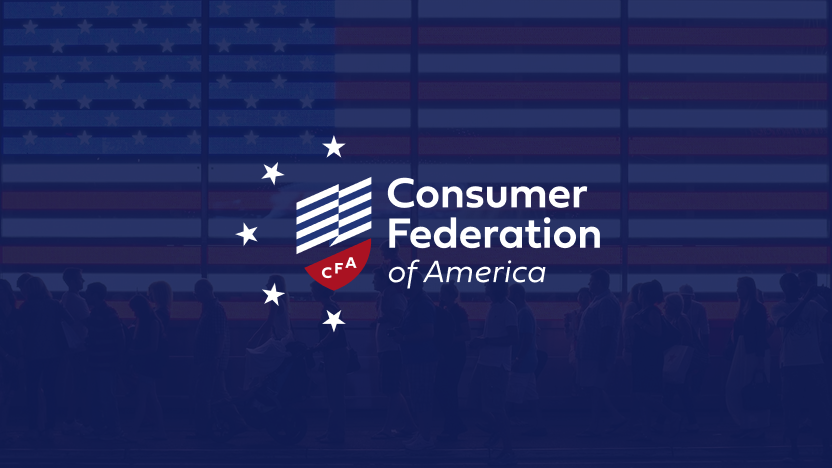Washington, D.C. – The Consumer Federation of America filed comments and a report in response to the Department of Energy’s Request for Information regarding reducing regulation that shows appliance efficiency standards have saved consumers trillions of dollars and helped grow the economy. These benefits could be undermined if the DOE abandons the principles of sound benefit-cost analysis in the rush to deregulate.
“Energy efficiency standards are one of the biggest consumer pocketbook issues the Trump Administration faces,” said Dr. Mark Cooper, Research Director for the Consumer Federation of America and author of the report.
The report entitled, Pocketbook Savings, Macroeconomic Growth and Other Public Benefits of Energy Efficiency Appliance Standards, points out that electricity and natural gas, the two sources of energy most directly affected by Department of Energy regulations are a major consumer expense, representing over 3 percent of total household expenditures. Typically, it is the 6th largest household expense.
Appliance efficiency standards adopted prior to 2008 have resulted in:
- $500 billion in consumer pocketbook savings; and,
- $300 billion of indirect macroeconomic benefits.
- At a cost of less than $200 billion to implement, resulting in a 4-to-1 benefit-cost ratio.
The present standards will result in:
- Consumer pocketbook savings of about $400 billion; and,
- $350 billion of indirect macroeconomic benefits,
- at a cost of less than $90 billion to implement, resulting in a benefit-cost ratio of over 8-to-1.
Future benefits expected under the current law and administrative approach have been estimated to be over $720 billion in consumer pocketbook savings and another $500 billion in macroeconomic benefits, at a cost of less than $240 billion.
The Legal and Analytical Framework
“Against the background of the remarkable success of these standards, we believe that the Department of Energy’s efforts, in response to President Trump’s executive orders, to reform regulation and reduce regulatory burdens are, thankfully, constrained by laws” stated Cooper.
The DOE is obligated under existing law and executive orders to adopt regulations that:
- Strive to deliver the maximum net benefit in terms of energy efficiency;
- must be updated in pursuit of maximum net benefit on a regular basis; and,
- are not allowed to backslide.
- Take all benefits and costs into account, within the constraints of technologies that are feasible and practicable; and,
- be evaluated with discount rates ranging from 3% to 7%; and,
- be quantified, if possible, but where that is impossible or uncertain, qualitative evaluations are to be made.
Regulatory reforms that remove or weaken these standards will violate the law. More importantly, they will add costs to America’s struggling households. Furthermore, American businesses, all of whom are struggling to reduce energy costs, are also the beneficiaries of these standards.
“True regulatory reform should earn its keep the old fashioned way, by increasing the net benefit of energy efficiency measures and raising consumer pocketbook savings, while helping to grow the economy,” said Cooper.
Contact: Jack Gillis, 202-737-0766
The Consumer Federation of America is a nonprofit association of more than 250 consumer groups that was founded in 1968 to advance the consumer interest through research, advocacy, and education.


